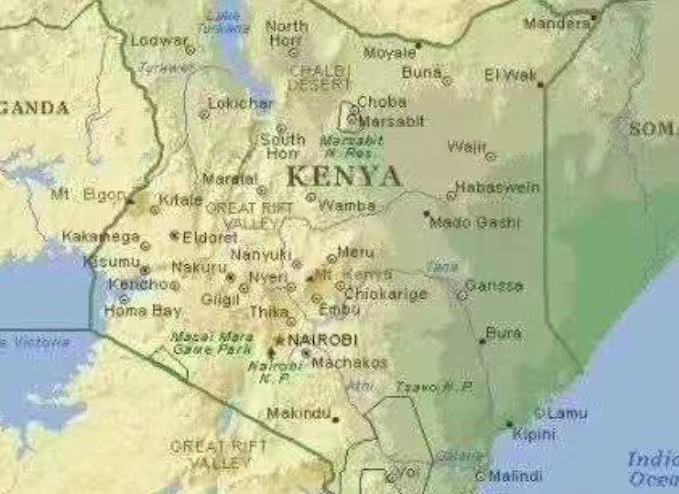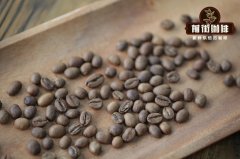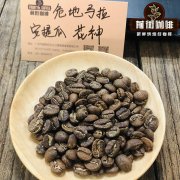According to the characteristics of Kenyan coffee beans, is Azaria's special treatment of fermented coffee beans good?
Asalia, Kenya
Producing area: Sika Thika, Kenya
Processing plant: Asali honey processing plant
Altitude: 1550mi 1750m
Rating: AA TOP
Variety: SL28,SL34
Treatment: K72 (Kenya 72 hours washing)
Sika is a small town in Nairobi, the capital of Kenya. There are many coffee fields around Nairobi, and Sika is an industrial town, but surrounded by agriculture and waterfalls. There are about 2000 farmers in Sika. The planting history of Kenyan Sika coffee can be traced back to the end of the 19th century. Coffee trees were introduced from neighboring Ethiopia in the north and improved by their own varieties. At present, the common varieties are bourbon species, Ken special species (Kents, SL34, SL28), Tibika and Luri 11 (Riuri 11). About 90% of the coffee is now grown in SL34,SL28. The new variety Batian published in 2007 has not been planted in large quantities.

Introduction of treatment method
Kenyan water washing is a cyclic repeated treatment after fermentation. On the day of harvest, the best quality coffee cherries are selected, peeled and fermented. The fermentation time is 24 hours, and then washed with clean river water after 24 hours. Then fermented with Qianjing river water for 24 hours, then washed, so repeated 3 times, up to 72 hours, so it is called Kenyan 72-hour fermentation water washing treatment, referred to as K72. This treatment allows coffee beans to ferment for a long time at low temperature, so that beans can have a brighter, cleaner but full flavor!

The raw bean treatment method of honey treatment plant is mainly water washing, grading according to the size of beans, and finally cup test to determine its actual value. The highest grade of coffee beans is AA (that is, the order of beans left on the 7.2mm sieve), followed by A (stay
The next largest coffee beans on the 6.8mm sieve), B (medium coffee beans left on the 6.2mm sieve), C (all small coffee beans in the boy B), PB (oval granulated beans), and finally, too light, too small under T and T beans. Generally speaking, grade An and B beans will be mixed for export, that is, we often hear in the market that AB Kenyan authorities (CBK) have very high requirements for coffee beans, not only good quality, good quality, but also consistent packaging, no wonder coffee lovers never forget to try a cup of Kenyan coffee.
Production area introduction
The coffee producing areas in Kenya are mainly concentrated in the plateau areas represented by Mount Mt.Kenya. Tropical climate, acid red volcanic soil provides a natural and suitable growth environment for coffee. It is most famous for seven major producing areas, including Neri, Sika, Chiambu, Geliniya, Ruiru, Mulanga and the western side of Mount Kenya, with the main producing areas such as Neri (Nveri) and Ruilu (Ruiru) in the middle.
Kenya is a famous coffee producing country in East Africa, and it is also an important producing area of high-quality coffee in the world. Kenya coffee has a full flavor and strong characteristics, and there is also a set of fine coffee trade system. The classification of coffee bean size, such as AA or AB, cannot be equated with flavor. The bidding batch of coffee bureau is based on cup flavor test, and the bidding price of fine products in Kenya remains high, and the competition among raw bean merchants in various countries is very fierce! The good reputation of Kenyan coffee comes from the technical research and development of academic units, careful education of farmers' knowledge related to coffee planting, and farmers' meticulous quality control; while the microclimate and fertile soil suitable for coffee growth, the high hardness of coffee beans and the traditional 72-hour long Kenyan washing method are all the reasons for the bright and sour characteristics of Kenyan coffee.
Introduction of the treatment plant
"Asali" means "honey" in Swahili (the official languages of Kenya are English and Swahili). The Honey processing Plant (The AsaliCooperative) is located in the Great Rift Valley Sika region in the Aberdare Mountains of Kenya, connected to Ethiopia to the east. Honey processing plant is a washing plant composed of 155 small coffee farmers. Coffee cherries come from neighboring small coffee farmers. On Mount Kenya (MT. KENYA) and MT. Among Elgon, the more famous producing areas are Meru, Thika, Nyeri, Nakuru, Embu and so on.
Important Notice :
前街咖啡 FrontStreet Coffee has moved to new addredd:
FrontStreet Coffee Address: 315,Donghua East Road,GuangZhou
Tel:020 38364473
- Prev

Recommendation of special treatment coffee beans in Ethiopia-introduction of anaerobic treatment coffee Amedilo
African double champion Amedilaro, whose name is as beautiful as a Greek goddess, comes from Amederaro station, the coffee processing station at 2200 meters above sea level, where beans were born. The champion is just her added halo, exquisite handling and rich flavor. Treatment: the maturity of coffee cherries picked by all-red fruits is almost perfect, and it is carefully selected by farmers.
- Next

Guatemalan coffee beans, Hua Shen coffee beans taste characteristics and story origin. Coffee with a rich floral flavor
Origin: Guatemala variety: bourbon baking: cinnamon baking method: washing treatment altitude: 1200-1600m flavor; sour berries, smoke, citrus, light chocolate, rich layers, smooth taste. Located in the isthmus of Central America, Guatemala is a mountain and plateau topography formed by many volcanoes, producing high-quality alpine beans from Central America.
Related
- Beginners will see the "Coffee pull flower" guide!
- What is the difference between ice blog purified milk and ordinary milk coffee?
- Why is the Philippines the largest producer of crops in Liberia?
- For coffee extraction, should the fine powder be retained?
- How does extracted espresso fill pressed powder? How much strength does it take to press the powder?
- How to make jasmine cold extract coffee? Is the jasmine + latte good?
- Will this little toy really make the coffee taste better? How does Lily Drip affect coffee extraction?
- Will the action of slapping the filter cup also affect coffee extraction?
- What's the difference between powder-to-water ratio and powder-to-liquid ratio?
- What is the Ethiopian local species? What does it have to do with Heirloom native species?

